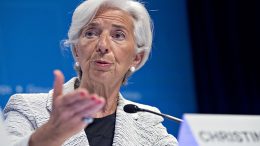The Opposition For Eurobond Remains Strong
Lidia Treiber (Wisdom Tree) | As the impact of Covid-19 lockdowns begin to more deeply unveil the economic impact that these severe measures have had on different European countries, the cost of funding has started to rise sharply for hard hit countries such as Italy and Spain. The spread of peripheral sovereign bonds over German sovereign bonds has begun to widen as investors become concerned about the rising debt to gross domestic product (GDP) levels for countries with already weaker fundamentals.









